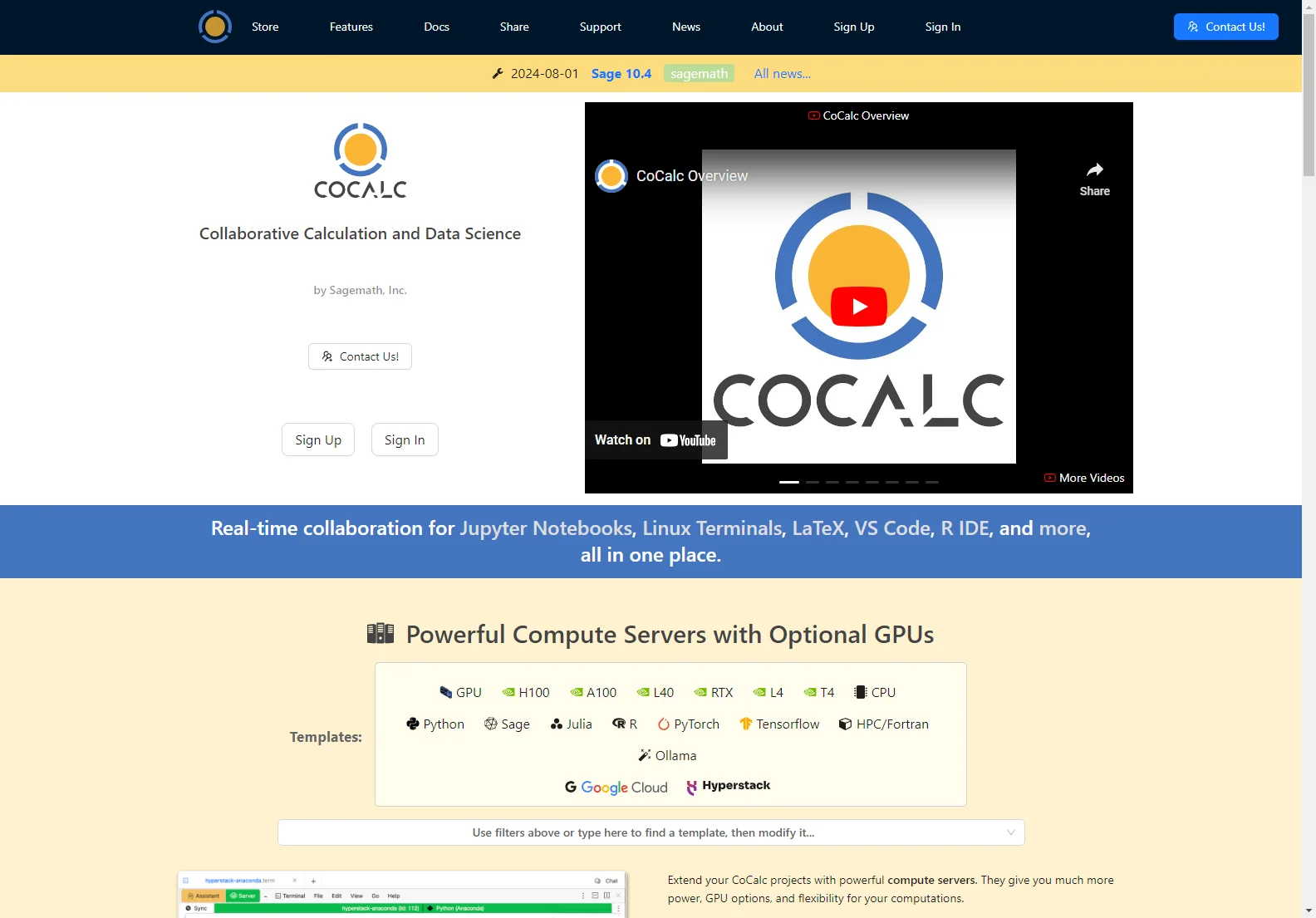CoCalc: Collaborative Calculation and Data Science Platform
CoCalc is a powerful online platform designed for real-time collaboration in data science, scientific research, and education. It seamlessly integrates Jupyter Notebooks, LaTeX, VS Code, Linux terminals, and more, providing a comprehensive environment for various computational tasks. This article explores CoCalc's key features, benefits, and applications.
Key Features
- Real-time Collaboration: CoCalc allows multiple users to work simultaneously on Jupyter Notebooks, LaTeX documents, and other projects, fostering seamless teamwork and efficient knowledge sharing.
- Powerful Compute Servers: Access powerful compute servers with optional GPUs (including NVIDIA T4, A100, H100, and others) for demanding computations. These servers are billed by the second, offering cost-effective scalability.
- Extensive Generative AI Integration: CoCalc integrates with various large language models (LLMs) like ChatGPT, enabling users to leverage AI for code generation, error correction, document summarization, and more.
- Multiple Programming Languages: Supports a wide range of programming languages, including Python, SageMath, Julia, R, and more, catering to diverse computational needs.
- Integrated Course Management: CoCalc functions as a virtual computer lab, simplifying course management with features like automated grading (via NBGrader) and real-time collaboration tools for instructors and students.
- Pre-installed Software: Comes with a variety of pre-installed software, including Python, SageMath, R, and Julia, minimizing setup time and effort.
- Versatile Tools: Includes a collaborative LaTeX editor, Linux terminal, computational whiteboard, and more, providing a rich set of tools for various tasks.
Benefits
- Enhanced Productivity: Real-time collaboration and powerful compute resources significantly boost productivity for individual users and teams.
- Simplified Workflow: The integrated environment streamlines workflows, reducing the need to switch between different applications.
- Cost-Effectiveness: Pay-as-you-go pricing for compute servers ensures cost-efficiency, especially for projects with fluctuating computational demands.
- Improved Collaboration: Real-time collaboration features facilitate seamless teamwork and knowledge sharing.
- Educational Advantages: The platform's features are particularly beneficial for educators, simplifying course management and enhancing student learning.
Use Cases
- Data Science Projects: Ideal for collaborative data analysis, modeling, and visualization.
- Scientific Research: Supports complex simulations, computations, and report writing.
- Educational Settings: Facilitates collaborative learning, project-based assignments, and automated grading.
- Software Development: Provides a robust environment for coding, testing, and collaboration.
Comparisons
CoCalc distinguishes itself from other platforms like Google Colab through its comprehensive suite of integrated tools, robust collaboration features, and flexible compute server options. While Google Colab offers free GPU access, CoCalc provides a wider range of GPU choices and more granular control over computing resources. Furthermore, CoCalc's integrated course management features are unmatched by many competitors.
Conclusion
CoCalc offers a powerful and versatile platform for collaborative calculation and data science. Its comprehensive features, seamless integration, and flexible pricing make it a valuable tool for researchers, educators, and data scientists alike.

